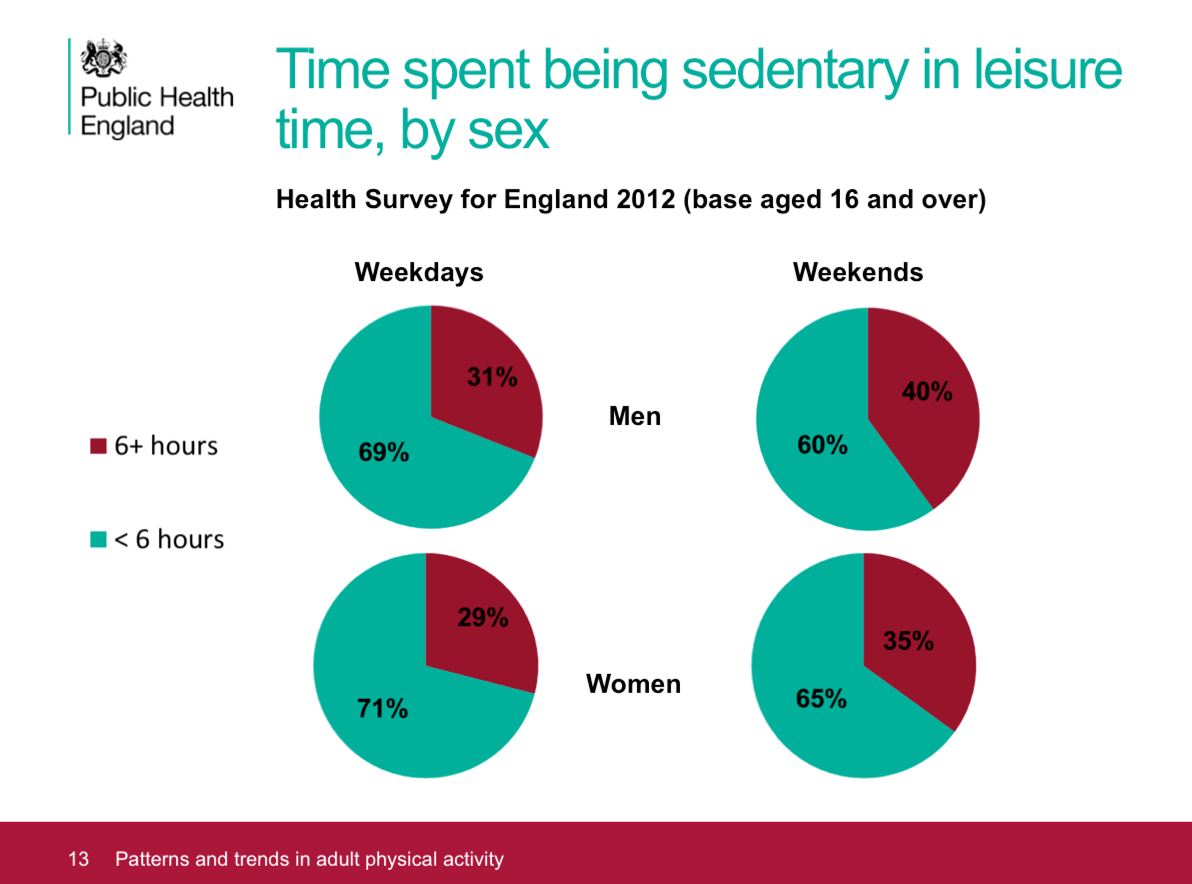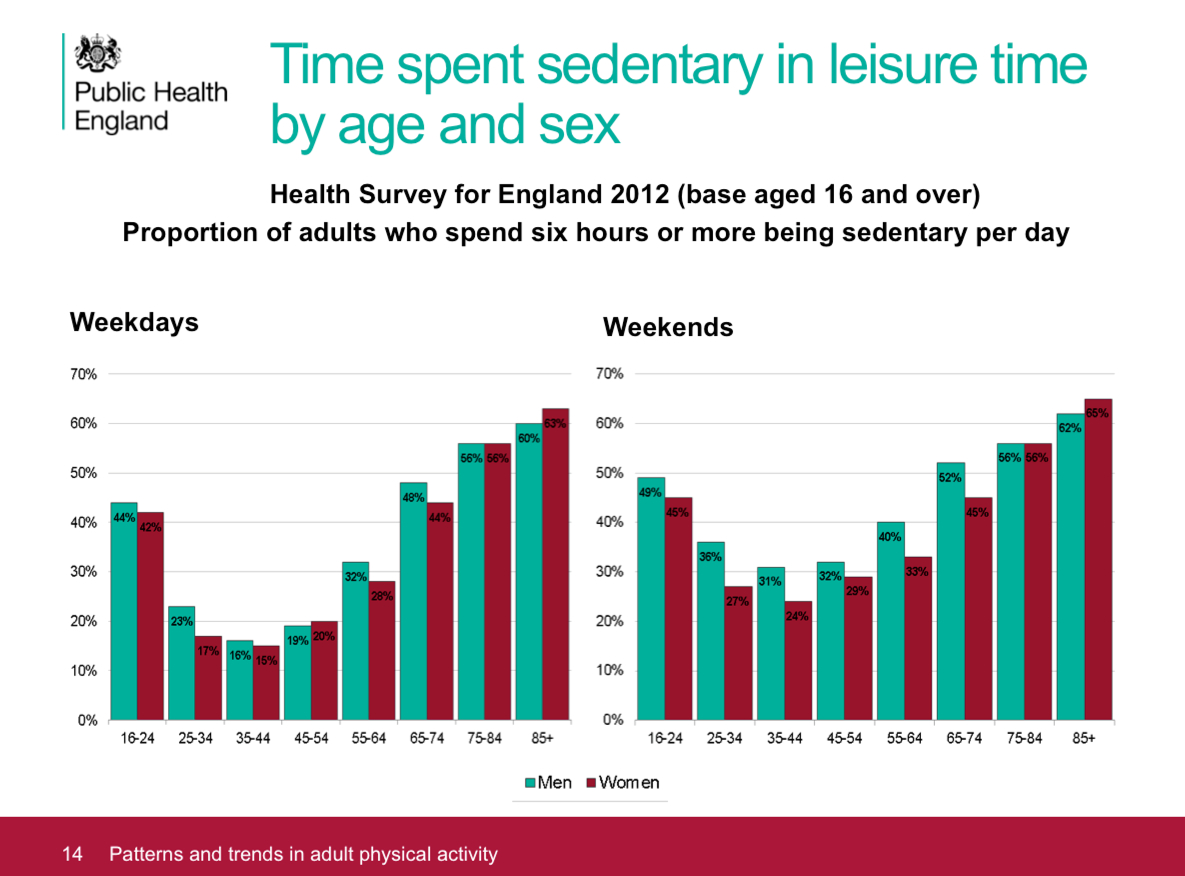Increasingly sedentary lifestyles
Sedentary behaviour is not simply a lack of physical activity but is a cluster of individual behaviours in which sitting or lying is the dominant mode of posture and energy expenditure is very low. Research suggests that sedentary behaviour is associated with poor health in all ages independent of the level of overall physical activity. Spending large amounts of time being sedentary may increase the risk of some adverse health outcomes, even among people who are active at the recommended levels.
The Sedentary Behaviour and Obesity Expert Working Group [2] noted:
- Researchers have increasingly shown an interest in very low levels of movement and sitting, i.e., sedentary behaviour. While the obvious examples of such behaviours are TV viewing and playing computer games, there are many daily sitting behaviours, including car travel, socialising, reading, and listening to music, as well as long periods spent sitting at school or work. It is all of these sedentary behaviours that are of interest to health researchers and policy makers.

- However, the rise in the interest in sedentary behaviours is closely associated with the rapid increase in the availability and attractiveness of a wide range of screen-based behaviours, including school/work use of computers, leisure time computer use (games, online shopping, internet surfing etc), and TV viewing. While some of these behaviours will have replaced other sedentary pastimes (e.g., radio, reading) over the years, there is widespread belief that the ubiquitous nature of screens is a threat to health from the point of view of very low energy expenditure and hence a risk to the development of overweight and obesity.

Slides: PHE Adult physical activity slide set – July 2015 [5]